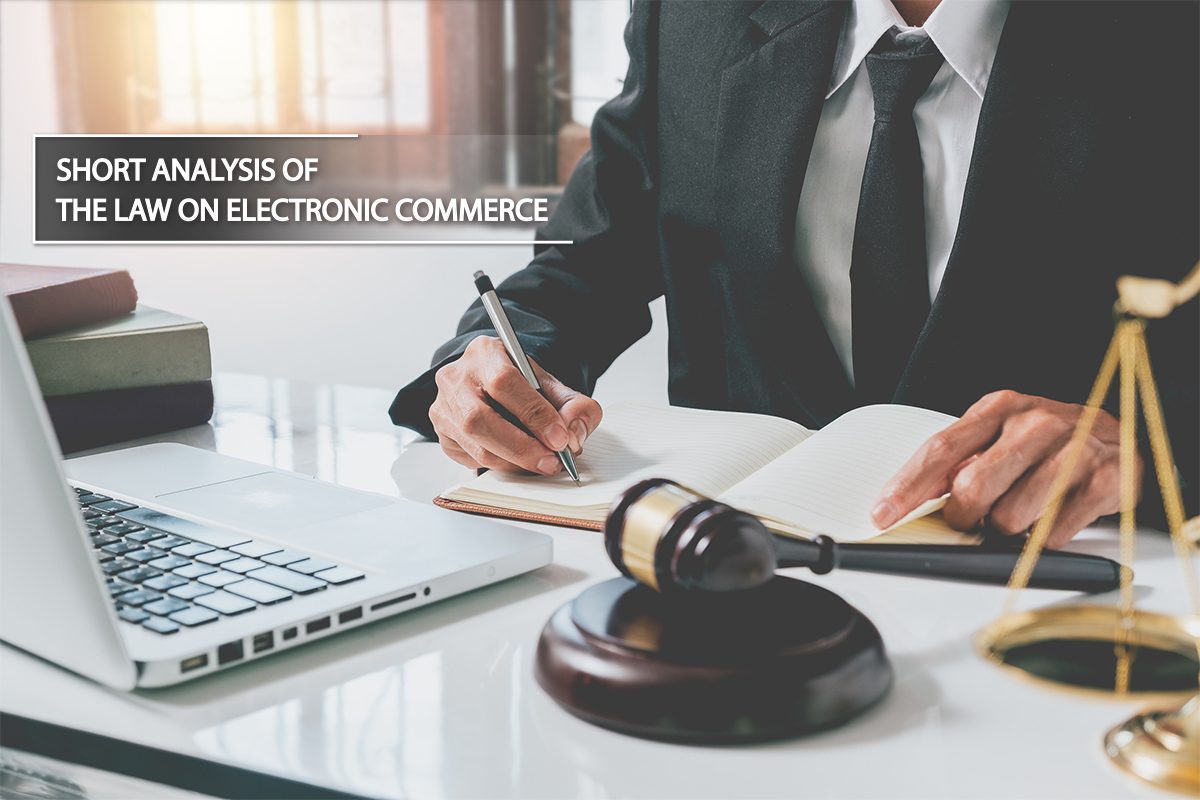For the first time in the Republic of Macedonia, the Law on Electronic Commerce was adopted in 2007. Then, for the first time, e-commerce was regulated in accordance with international (UNCITRAL Model Law) and European (E-Commerce Directive 2000/13) standards for e-commerce.
Since then until today, our legislator has made changes on four occasions by adopting Laws amending the Law on Electronic Commerce, the last one was made last year.
The Law on Electronic Commerce regulates the information society services related to electronic commerce, the responsibilities of information society service providers, commercial communication and the rules related to the conclusion of contracts in electronic form.
According to the Law, information society services are services that are provided for distance compensation, through electronic means and at the personal request of the recipient of the service. “Remote” means that the service is provided without the simultaneous presence of two parties. “By electronic means” means that the service is sent from the initial / source point and is received at the final destination through electronic equipment for processing (including digital compression) and data storage and is sent, transmitted and received entirely via cable, radio waves, optical means or other electromagnetic means. “At the personal request of the recipient of the service” means that the services are provided through the transfer of data at the personal request.
Information society services include in particular the sale of products and services, services for access to information or advertisements over the Internet and access to the services of the public communication network, data transmission or storage of the recipient’s data in the public communication network.
In accordance with the law, the information society service provider in the Republic of Macedonia is obliged to act and provide services in accordance with the laws and other regulations of the Republic of Macedonia.
Supervision over the implementation of this law is performed by the Ministry of Economy, the Ministry responsible for the affairs in the field of electronic communications and the Agency for Electronic Communications in accordance with their competencies determined by law.
While the inspection supervision over the implementation of the individual provisions of this Law is performed by the Agency for Electronic Communications through competent inspectors in accordance with the provisions of the Law on Electronic Communications and the State Market Inspectorate through competent inspectors in accordance with the provisions of the Law on State Market Inspectorate.
In the Law on Electronic Commerce, the legislator provided for the conclusion of contracts in electronic form, such as contracts that legal entities or natural persons, in whole or in part, conclude, send, receive, terminate, cancel, access and display electronically, using electronic, optical or similar means, including but not limited to Internet transmission. The validity of such agreements is not disputed because they are made by electronic message, ie in electronic form. Also, in accordance with this Law, both the bid and the acceptance of the bid can be given electronically, ie in electronic form.
Despite a well-established legal framework for regulating e-commerce and its compliance with international e-commerce standards, there is a lack of greater control over the implementation of legal provisions.
Both in the world and in our country, e-commerce, distance selling using the Internet, are becoming more and more relevant, especially in conditions of the global pandemic, when in most countries in the world the movement is restricted by introducing measures to protect the health of population.
Some research shows that in our country there is not enough control by the competent authorities and that a large number of consumers face daily problems with e-shopping, due to lack of sufficient information in terms of products and services offered and in terms of to the entities that offer them.
In order to protect consumers, it is necessary to pay special attention to Article 7 of the Law on Electronic Commerce, where the legislator has listed all the necessary information that the service provider (seller) should make available on the electronic platform where he sells, as well as greater control of the authorities in that area.
